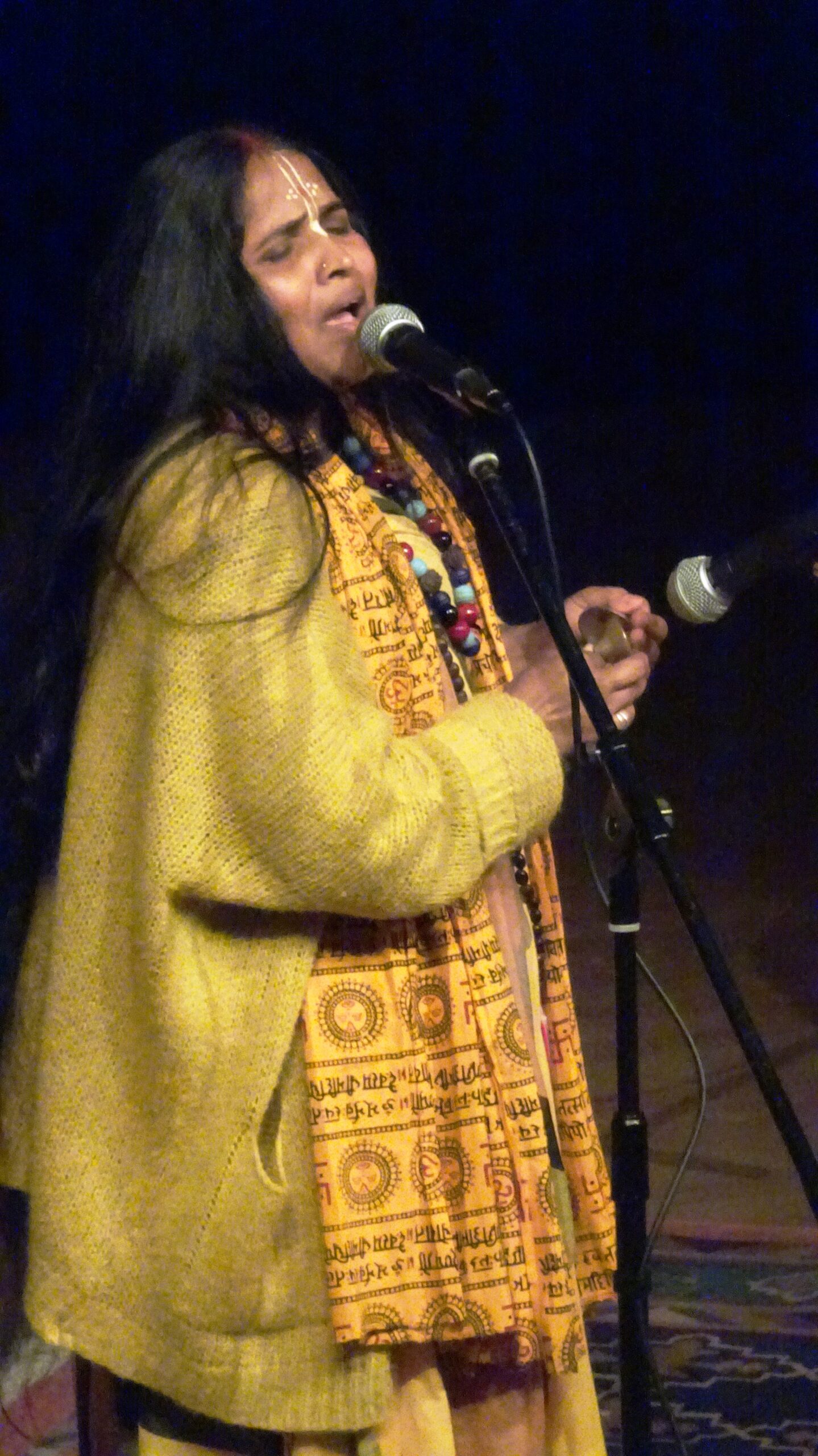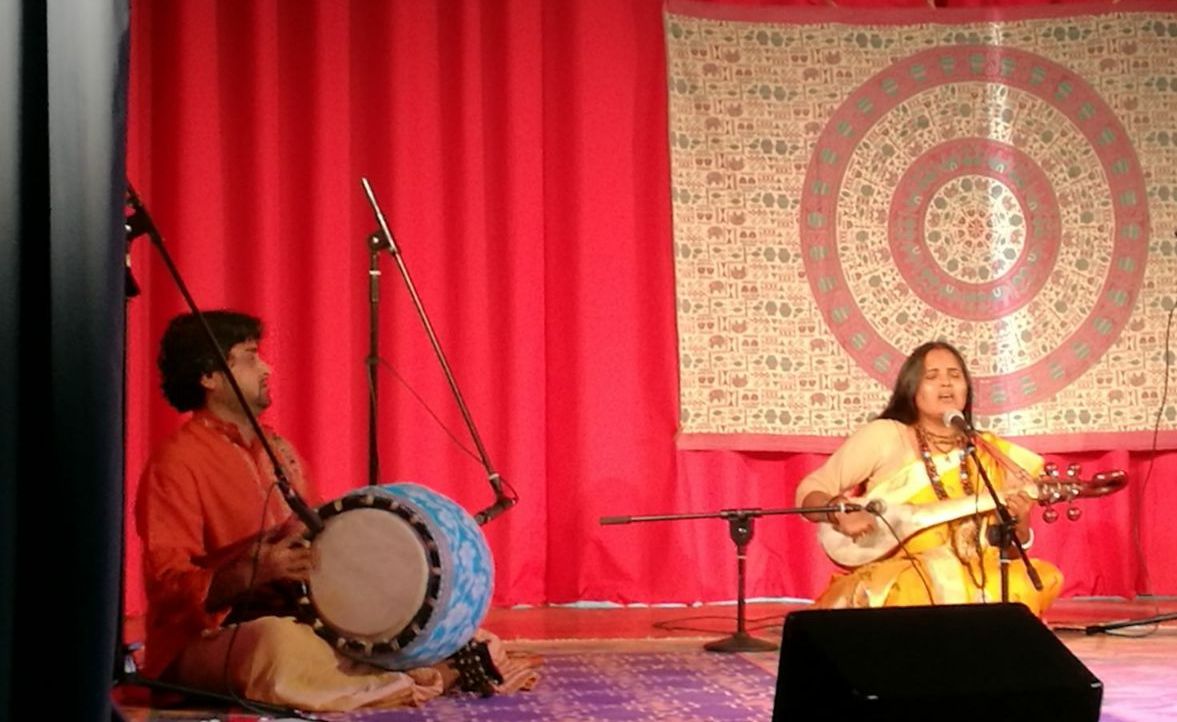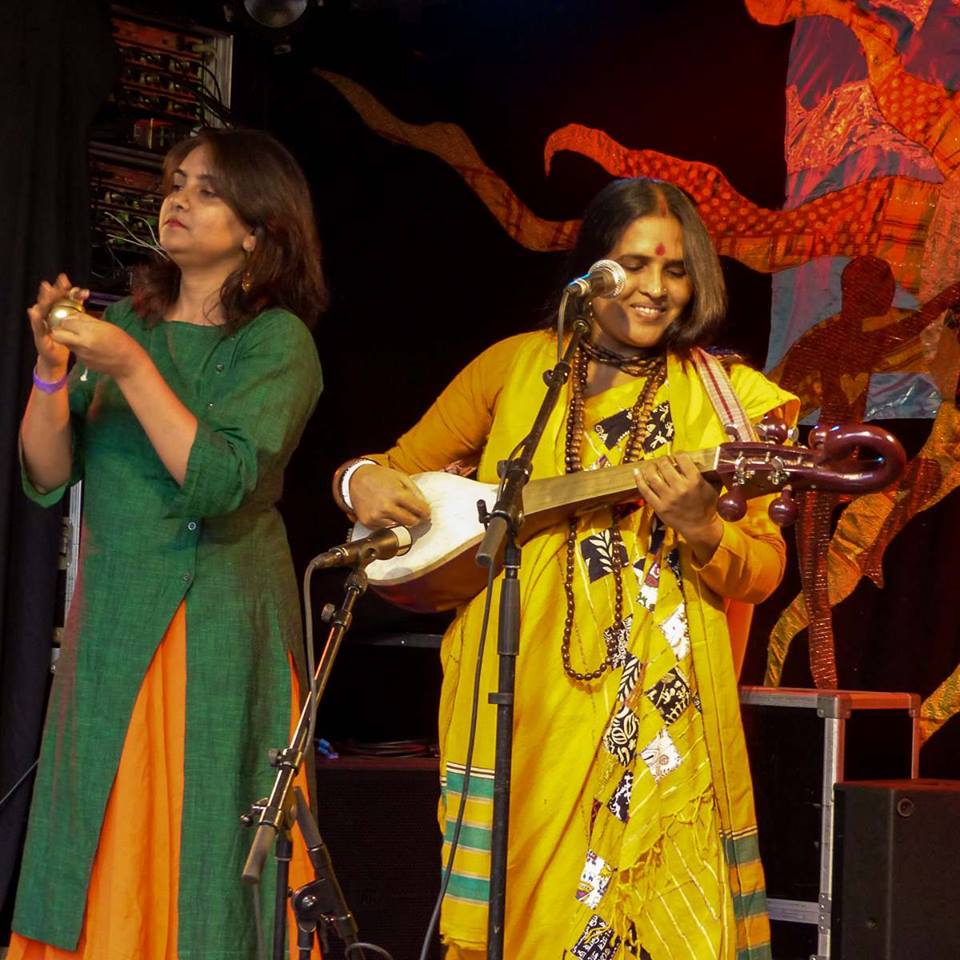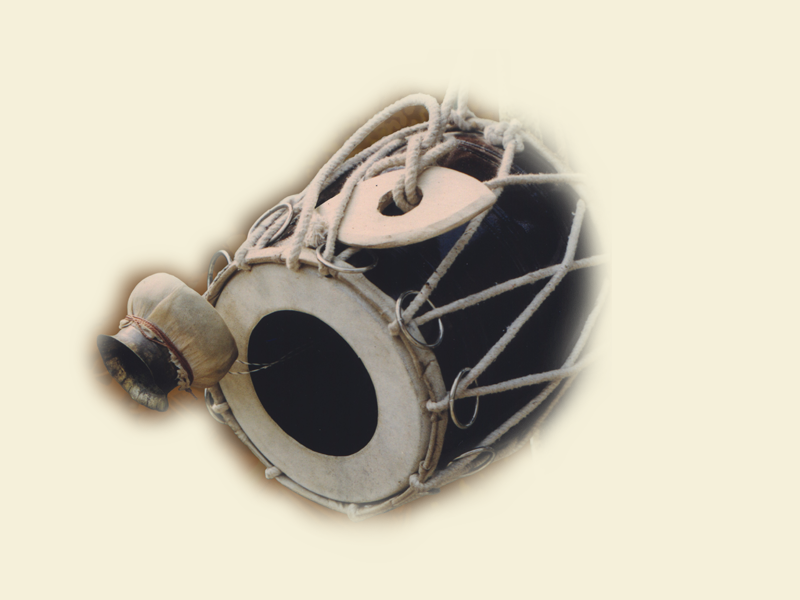Rina Das Baul is one of the most renowned female Baul singer from Santiniketan. Belonging from a Baul family, Rina learned Baul music from her grandfather when she was a child. In October 2022, Rina and her team Rangamatir Baul performed at WOMEX, the highest World Music platform, held at Lisbon in Portugal. She has also performed across India and abroad including Brittany festival in France, Urkult Festival in Sweden, Respect Festival Czech Republic. She collaborated with international artists like Casey Drissen from USA, Thommy Wahlstorm & Robert Wahlstorm of Sweden, and Otava Yo led by Alexey Belkin. Rina is now actively involved in transmitting their folk music heritage to the local children. Her work has been featured in the Songlines Magazine and in a blog by the curator of Center for Folklife and Cultural Heritage Betty Belanus on how Oral Traditions Shift to Digital: Bauls of West Bengal Face the Pandemic.



Rina Das had performed in the Armor India festival held in Morlaix, Britanny, France, on and from the 4th till the 10th of May 2018. She was a part of the ensemble Folks of Bengal and was accompanied by Dibakar Das Baul, Sajib Sarkar in Dhol and Subhrakamal Chattopadhyay in Flute. She had mesmerized the audience with her wide range of singing and musical skills all throughout the 3 performances that Folks of Bengal presented in this festival.

Rina Das had participated in the Urkult Festival of Sweden on and from the 2nd till the 4th of August, 2017. Among Baul Fakiri musicians, she was accompanied by two artists – flautist Mohan Tanti and percussionist Khokan Das. This annual festival is organised by a non-profit organisation named Urkult Society in north of Sweden in Nasaker village. They performed in the festival on August 4th, in front of around 2000 international audience at Nasakar and exhibited their excellent artistry. Audience interacted with the singers after their performance to appreciate their singing styles and talk about the Baul philosophy.
